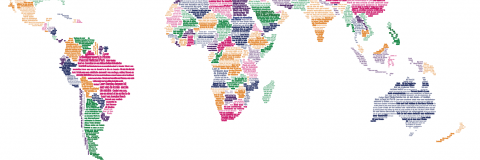What about communication?
- As can be expected from a country the size of China, there are many different languages spoken by its people. Besides Mandarin, the official national language, there are around ten regional groups of main languages which are all called Chinese. However, they are very dissimilar languages. Many differ so much that its users do not understand each other.
- Chinese characters are also not all the same. The Simplified Chinese Characters and the Traditional Chinese Characters are the standardised characters for official use in mainland China, Hong Kong, Macau and overseas Chinese communities. The Romanised version of these characters are called Pinyin.
- Around Hong Kong, Cantonese is the most commonly used language.
Words in Mandarin (in Pinyin)
- Hello: Nihăo
- Good morning: Zaoshàng hăo
- Good evening: Wănshàng hăo
- Bye: Zàijiàn
- Yes: Shì
- No: Bùshì
- Please: Qĭng
- Thank you: Xièxie
- You’re welcome: Búkèqi
- Excuse me: Duìbùqĭ
Communicating with home
- China’s mobile phone network is good and almost everyone has a mobile phone. Landlines are still in use and can be quite cheap. Common practise is to pay after you make a call so check the tariffs beforehand.
- Make sure your mobile phone is unlocked if you’re planning to use it in China. Sim cards for temporary use are widely available. Be sure to cancel the card before leaving the country.
- Fast Wi-Fi is widely provided by hotels, bars, restaurant, cafes and also in public places. You may however sometimes need a Chinese email address or phone number to access it.
- Censorship is commonplace in China. Be prepared to go without websites and apps such as Facebook, Twitter, WhatsApp and many news outlets during your stay and change to locally used apps. Keep in mind that your email account could also be inaccessible, especially the larger ones such as Gmail. Using a VPN is a good, if sometimes slow, option to circumnavigate the censorship; download and install before you travel.
- Internet cafes are common but are often hidden away from public view and frequently require a Chinese ID to enter. Cafes in big cities and around train stations and big tourist hubs can be less strict.
Gerelateerde pagina's
JoHo: crossroads via de bundel
JoHo: crossroads in spotlight
- 1 of 2
- volgende ›
Chapters
Teksten & Informatie
JoHo: paginawijzer
JoHo 'chapter 'pagina
Wat vind je op een JoHo 'chapter' pagina?
- JoHo chapters zijn tekstblokken en hoofdstukken rond een specifieke vraag of een deelonderwerp
Crossroad: volgen
- Via een beperkt aantal geselecteerde webpagina's kan je verder reizen op de JoHo website
Crossroad: kiezen
- Via alle aan het chapter verbonden webpagina's kan je verder lezen in een volgend hoofdstuk of tekstonderdeel.
Footprints: bewaren
- Je kunt deze pagina bewaren in je persoonlijke lijsten zoals: je eigen paginabundel, je to-do-list, je checklist of bijvoorbeeld je meeneem(pack)lijst. Je vindt jouw persoonlijke lijsten onderaan vrijwel elke webpagina of op je userpage
- Dit is een service voor JoHo donateurs en abonnees.
Abonnement: nemen
- Hier kun je naar de pagina om je aan te sluiten bij JoHo, JoHo te steunen en zelf en volledig gebruik te kunnen maken van alle teksten en tools.
Abonnement: checken
- Hier vind je wat jouw status is als JoHo donateur of abonnee
Prints: maken
- Dit is een service voor wie bij JoHo is aangesloten. Wil je een tekst overzichtelijk printen, gebruik dan deze knop.
JoHo: abonnement nemen
JoHo: footprint achterlaten
Laatste nieuws

















